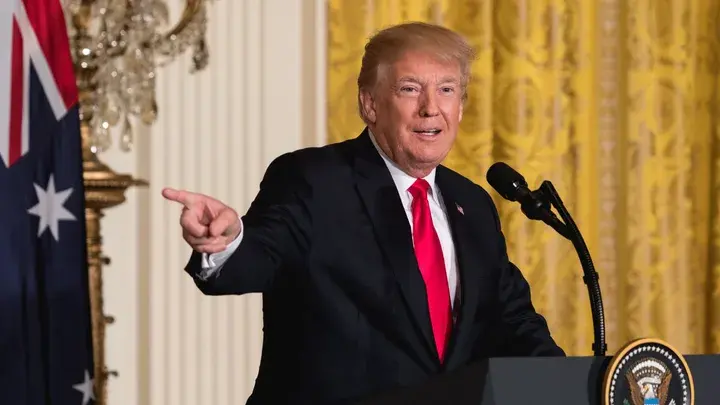Alongside his remarks on taxes, Trump also weighed in on tariffs and other economic reforms that could reshape the nation’s financial landscape.
The Bold Proposal: Ending Income Tax
Donald Trump’s latest statement on tax reform has ignited a firestorm of discussion. During a recent interview, Trump proposed ending the federal income tax altogether, an idea that challenges the very foundation of the nation’s tax system. While the specifics of how this would be implemented remain unclear, Trump argued that eliminating income tax would stimulate the economy, simplify the tax code, and reduce the financial burden on American workers.
The proposal is part of Trump’s broader vision for the US economy, which he claims would unleash job growth, enhance wage growth, and reduce government spending. In his words, "Ending income tax would give American businesses the freedom to grow, innovate, and compete globally." Trump also emphasized that the move would allow individuals to keep more of their earnings, providing a boost to personal finances and consumer spending.
What’s the Catch?
While the idea of eliminating income tax is popular with some of Trump’s supporters, experts have raised concerns about the feasibility of such a proposal. The federal income tax is a major source of revenue for the US government, funding essential services such as healthcare, defense, education, and infrastructure. Without income tax, there would need to be an alternative method of generating revenue to ensure that these services remain funded.
Trump has suggested that revenue could be made up through alternative means, such as corporate taxes, tariffs, and reduced government spending. However, the specifics of how these changes would balance the budget and maintain essential services are still uncertain. Critics argue that cutting income tax without a solid financial plan could lead to massive deficits and ballooning national debt.
Tariffs: A Key Pillar of Trump’s Economic Strategy
In addition to his tax plan, Trump also reiterated his stance on tariffs, particularly as they relate to trade relations with China. Throughout his presidency, Trump implemented a series of tariffs aimed at reducing the US trade deficit and encouraging American manufacturing. He argued that these tariffs protected American jobs and industries from unfair foreign competition.
Trump has pledged to continue using tariffs as a tool to force other countries, particularly China, to adopt fairer trade practices. "Tariffs are necessary to level the playing field and ensure that American businesses are not taken advantage of," he said. Under his proposed plan, tariffs would be adjusted based on trade negotiations and the need to protect key American industries.

Other Economic Reforms
Beyond income tax and tariffs, Trump outlined a series of other economic reforms that he believes will boost the American economy. These include reducing regulations on businesses, cutting government spending, and promoting energy independence through domestic oil and gas production. He also emphasized the importance of encouraging American innovation and ensuring that the country remains competitive in the global marketplace.
What Does This Mean for the US Economy?
The prospect of ending income tax and implementing sweeping economic reforms is sure to spark significant debate among lawmakers and the public. Proponents of Trump’s policies argue that they would encourage economic growth, create jobs, and empower businesses to thrive. However, critics worry that the proposed changes could lead to a loss of critical government services, greater inequality, and financial instability.
For Americans, the key question remains: How would such policies affect their day-to-day lives? While ending income tax might sound appealing, the potential trade-offs—such as increased corporate taxes, tariffs, or cuts to social services—are important considerations. The future of the US economy will largely depend on how these proposals are implemented and whether they achieve the desired results.
Future of the US Economy
As Trump’s proposal to end income tax continues to make waves, it will be interesting to see how Congress and the public respond. If Trump runs for office again in 2024, his economic policies will likely be a central issue of his campaign. Whether or not his plan becomes a reality will depend on the political climate, economic factors, and the public’s appetite for sweeping change.
For now, one thing is clear: Trump’s proposal to eliminate income tax has ignited a much-needed discussion on the future of the US economy, taxes, and economic reforms. Whether the idea is ultimately implemented or not, it has opened the door to new possibilities for restructuring the nation’s financial system.









